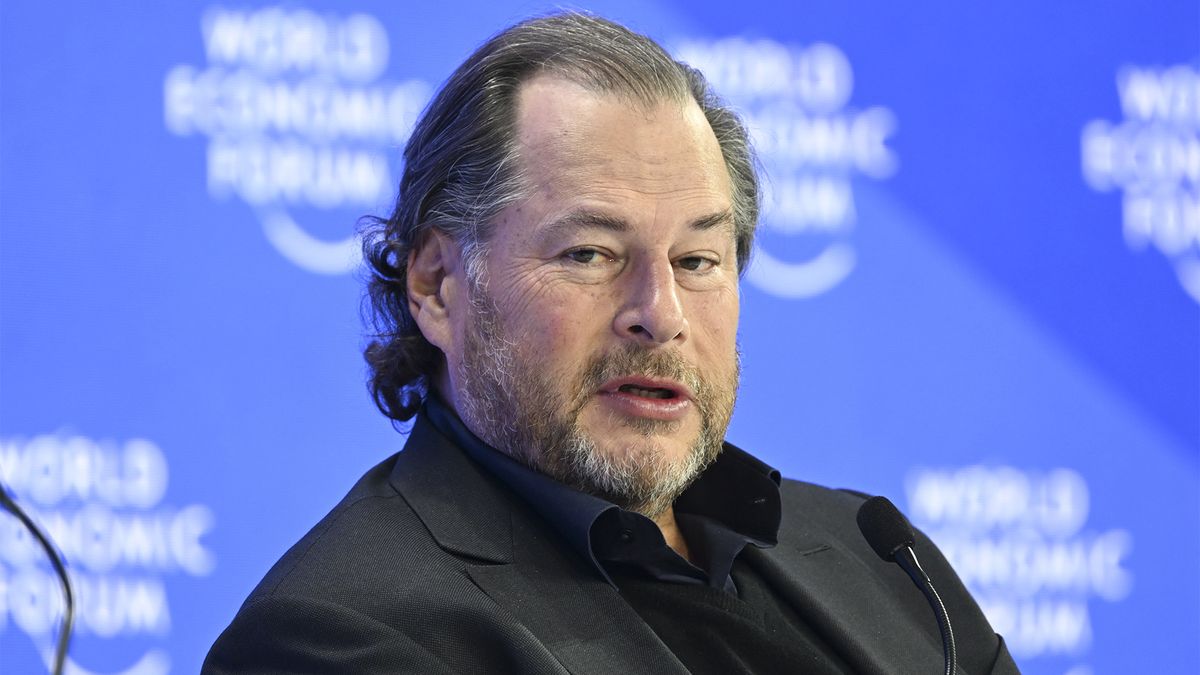Salesforce CEO Marc Benioff thinks current chief executives will be among the last to oversee an all-human workforce as the use of AI agents becomes more widespread.
Benioff’s prediction came during a conversation with Axios at the World Economic Forum in Davos, Switzerland in January, where he referred to AI agents as “digital labor” capable of handling roles previously reserved for human workers.
“We are really moving into a world now of managing humans and agents together,” Benioff said, referring to Salesforce’s own agentic offering dubbed Agentforce.
“Because I’m using Agentforce, I just have that much more productivity,” he added.
Benioff pointed to the ability of Salesforce agents to resolve support inquiries, adding that he is working out ways to reposition human support agents in sales positions as those employees now have much less work.
This is not the first time Benioff has made comments about the future of enterprise workforces in the age of AI. The Salesforce chief previously claimed it was considering a hiring freeze on software engineers on the back of heightened productivity.
“In engineering this year at Salesforce, we’re seriously debating – maybe we aren’t going to hire anybody this year,” Benioff said on a podcast in January.
Benioff claimed Salesforce has seen huge productivity gains as software engineers work side-by-side with agents. Agents give businesses the ability to do more, he noted, particularly when it comes to engineering and development.
“There’s no question the world is changing, when it gets down to labor and delivering the next generation of labor.”
Salesforce is bullish on AI agents
Salesforce was among the first major tech companies to flock to agentic AI, which has become the new industry obsession. The company unveiled the Agentforce service at its annual Dreamforce conference in September 2024, firing the starting gun in a new AI ‘race’ across the industry.
During the launch, Benioff was highly vocal over the potential of agents, touting this as the next natural step in the evolution of generative AI.
Since emerging in late 2022, generative AI tools have largely been focused around AI ‘assistants’ such as Microsoft’s Copilot service, which sits adjacent to the human worker in a supporting role.
With agents, however, Benioff insisted enterprises could begin to unlock significant gains by reducing workload pressures on human staff.
The Salesforce chief exec also took the opportunity to criticize industry competitors such as Microsoft over their approach to AI assistants during the launch event – and this has since become a recurring trend.
Bold predictions on the future of work
Benioff isn’t the only one who thinks AI is going to affect workforce hiring, as several other big names in tech seem to be predicting a similar future.
Meta CEO Mark Zuckerberg claimed earlier this month that it could start replacing software engineers with AI as early as 2025 when speaking on the Joe Rogan Experience podcast.
“Probably in 2025 we at Meta, as well as the other companies that are basically working on this, are going to have an AI that can effectively be a sort of mid-level engineer at your company that can write code,” Zuckerberg said.
Fintech firm Klarna has stopped hiring new staff members through its use of AI, with CEO Sebastian Siemiatkowsk claiming that its headcount had fallen by 22% over a year as AI had allowed for natural attrition to reduce the workforce size.
Siemiatkowski has even suggested that AI could replace his own job as a CEO because all work can essentially be broken down into a combination of reasoning and knowledge, and AI reasoning has reached such a point that it could carry out tasks reserved for execs.
Despite big tech’s enthusiasm, though, the age of the AI worker has run into a few hiccups already.
An AI software engineer designed by AI firm Cognition recently disappointed by performing badly on tasks and struggling to compete with human workers.
MORE FROM ITPRO
Source link
